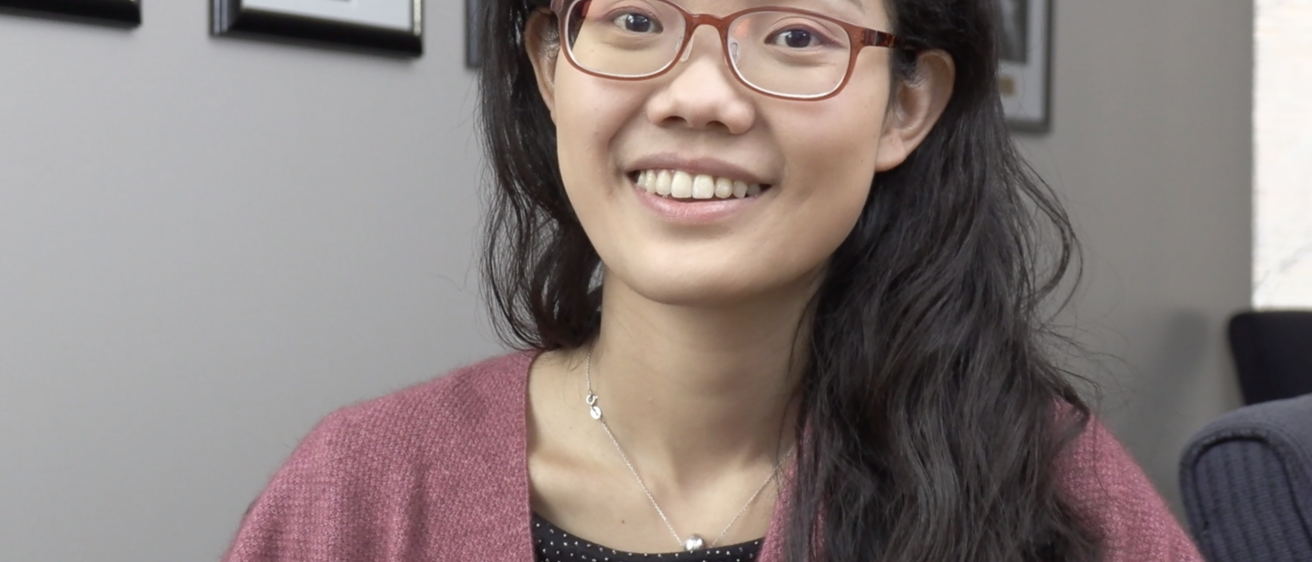Rosaline Ching-Lan Lin, doctoral student in Counseling Psychology, is working to make a positive impact on mental health in rural Iowa communities.
Originally from Taipei, Taiwan, Lin initially wanted to be a journalist, studying psychology to become a better interviewer and to learn what was meaningful to people. However, she fell in love with counseling and psychology and decided to pursue a Master of Education from the University of Missouri.
When deciding where to pursue her doctorate, the University of Iowa College of Education’s Counseling Psychology program stood out to Lin because of the program’s commitment to community engagement, renowned faculty, and a relaxed feeling among the faculty and students.
“Everyone was friendly and nice, they seemed very warm, and at the same time they are productive researchers and big contributors in the field,” Lin says. “What really stood out to me about Iowa’s program was the sense of community, the emphasis on community engagement, and how much the program is involved in the community. I thought that was very different from what I was used to.”
Inspired by her own experiences growing up with low vision and how it had a significant impact on her career development, Lin’s research interests are the career development of high ability racial-ethnic minority students with disabilities. She is also interested in cross-cultural and multicultural psychology. After graduation, Lin hopes to go into private practice.
“During my cross-cultural journey, I learned that there are many different ways of thinking in the world. There are a lot of unique cultural differences and I want to learn more about them and explore how to work collaboratively with diverse populations,” Lin says.
As a doctoral candidate, Lin has worked on Project HOPE (Healthcare Occupations Preparation and Exploration) a STEM-based curricular intervention for rural Iowa middle schoolers. The program, led by Counseling Psychology Professor Saba Ali, connects minority and low socioeconomic middle school students to the health science professions early in their education. Lin has been to four different middle schools in Iowa and helps develop curriculum and design student workbooks. Lin says that she has grown professionally through Project HOPE.
“I began sitting in our supervision meetings, not knowing what to expect, and trying to keep up and make sure that I don’t make any mistakes,” Lin says. “Now, I realize that I can provide feedback based on my experiences and clinical training, and even facilitate the discussion. I developed the competence and warmth that I gravitated towards when I picked this program.”
Lin also works as a graduate assistant on associate professor Martin Kivlighan’s telepsychology grant, Graduate Psychology Training in Telepsychology and OUD and SUD Prevention and Treatment in Rural Iowa. She is now helping set up a telehealth clinic to address the opioid epidemic in Iowa.
“Community engagement is very important to me because not only am I working with clients on an individual level, but it allows me to make some impact on a larger level,” Lin says. “It has afforded me the opportunity to express my gratitude and contribute to the community I live in and care for.”
During her time in rural Iowa communities, Lin has learned that Iowans are currently facing a lack of mental health resources and feel a stigma around seeking mental health counseling.
“A lot of clients tell me they don’t want people to think they are crazy. I think it requires a lot of work on the community to destigmatize coming to counseling for mental health service,” Lin says. “When the community members are welcoming and are understanding of mental health and what goes into psychological wellbeing and how to support others, then the individual who is struggling can feel supported and they won’t be worried that they are going to be stigmatized if they go seek out mental health counseling.”
